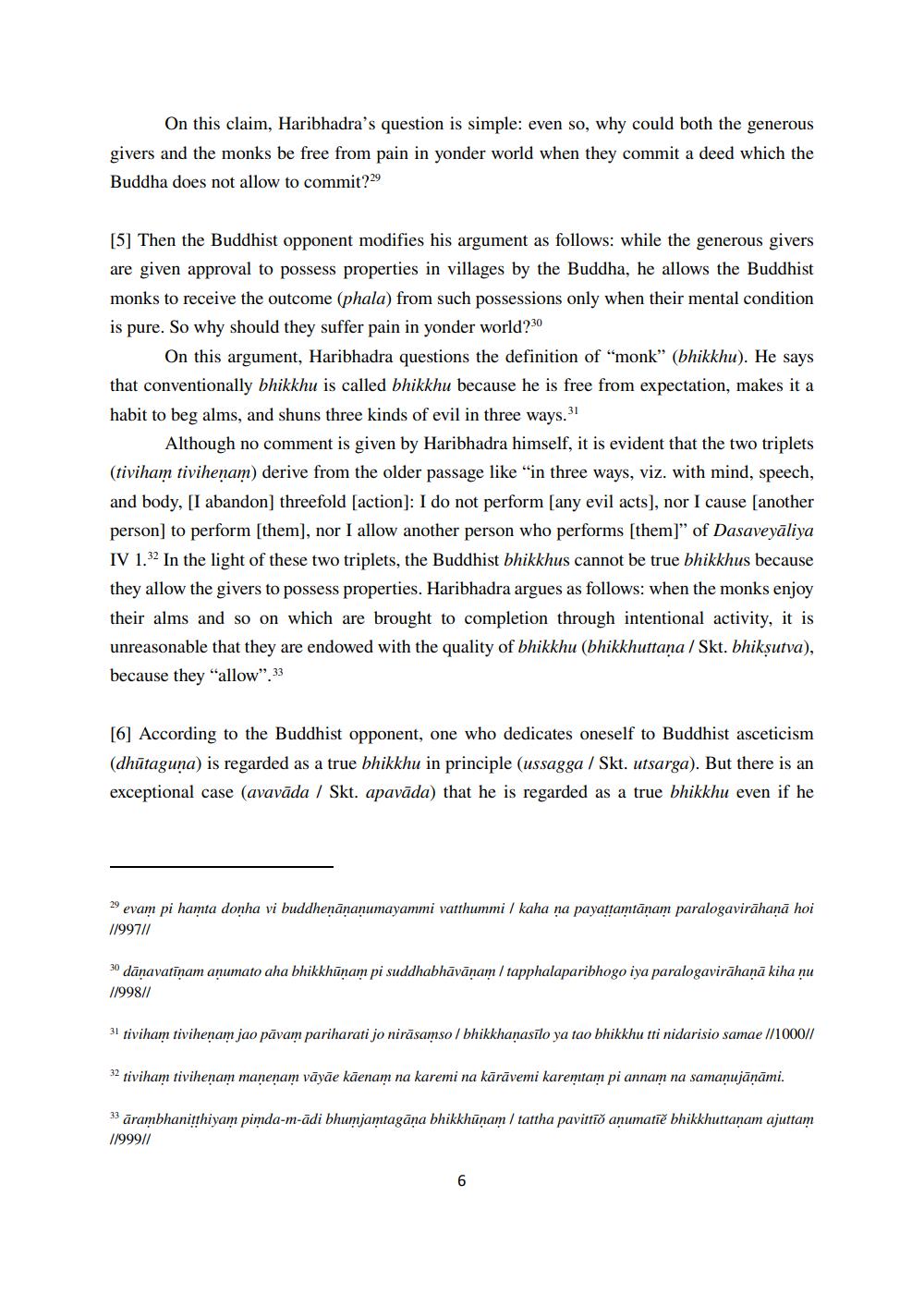Book Title: Haribhadra On Property Ownership Of Buddhist Monk Author(s): Yutaka Kawasaki Publisher: Yutaka Kawasaki View full book textPage 6
________________ On this claim, Haribhadra's question is simple: even so, why could both the generous givers and the monks be free from pain in yonder world when they commit a deed which the Buddha does not allow to commit?29 [5] Then the Buddhist opponent modifies his argument as follows: while the generous givers are given approval to possess properties in villages by the Buddha, he allows the Buddhist monks to receive the outcome (phala) from such possessions only when their mental condition is pure. So why should they suffer pain in yonder world?30 On this argument, Haribhadra questions the definition of "monk” (bhikkhu). He says that conventionally bhikkhu is called bhikkhu because he is free from expectation, makes it a habit to beg alms, and shuns three kinds of evil in three ways. 31 Although no comment is given by Haribhadra himself, it is evident that the two triplets (tiviham tivihenam) derive from the older passage like “in three ways, viz. with mind, speech, and body, [I abandon) threefold [action]: I do not perform (any evil acts), nor I cause [another person) to perform (them), nor I allow another person who performs (them)" of Dasaveyāliya IV 1.32 In the light of these two triplets, the Buddhist bhikkhus cannot be true bhikkhus because they allow the givers to possess properties. Haribhadra argues as follows: when the monks enjoy their alms and so on which are brought to completion through intentional activity, it is unreasonable that they are endowed with the quality of bhikkhu (bhikkhuttaņa / Skt. bhikṣutva), because they "allow”. 33 [6] According to the Buddhist opponent, one who dedicates oneself to Buddhist asceticism (dhūtaguna) is regarded as a true bhikkhu in principle (ussagga / Skt. utsarga). But there is an exceptional case (avavāda / Skt. apavāda) that he is regarded as a true bhikkhu even if he 29 evam pi hamta donha vi buddhenānanumayammi vatthummi / kaha na payattamtānam paralogavirāhanā hoi 1/99711 30 dāņavatīņam anumato aha bhikkhūnam pi suddhabhāvānam / tapphalaparibhogo iya paralogavirāhaņā kiha ņu //998// 31 tiviham tivihenam jao pāvam pariharati jo nirāsamso / bhikkhanasilo ya tao bhikkhu tti nidarisio samae //1000/1 32 tiviham tivihenam manenam vāyāe kāenam na karemi na kārāvemi karemtam pi annam na samanujāņāmi. 33 ārambhanitthiyam pimda-m-ādi bhumjamtagāna bhikkhūņam / tattha pavittīð anumatīě bhikkhuttanam ajuttam //999/1Page Navigation
1 ... 4 5 6 7 8 9 10 11 12
